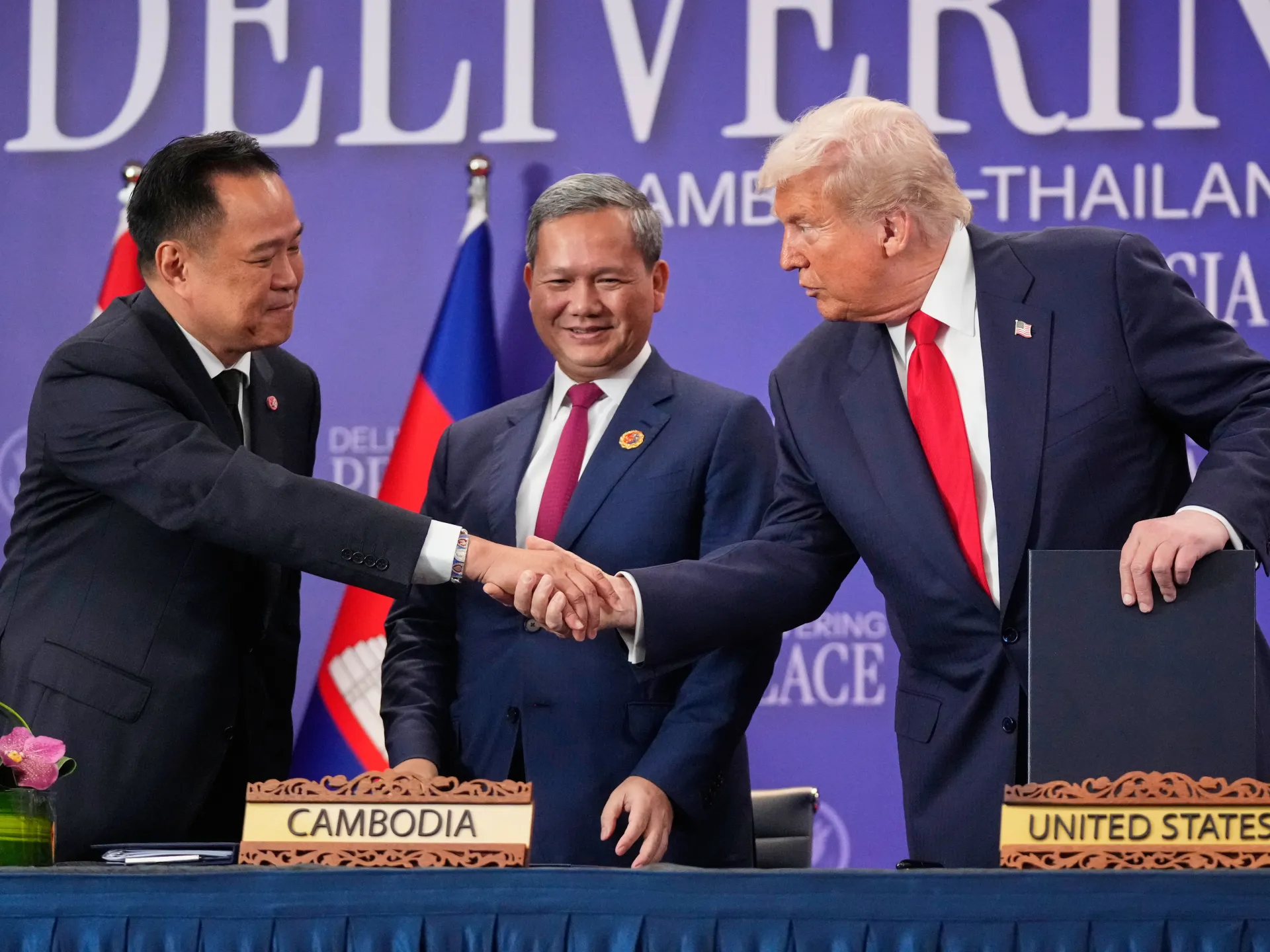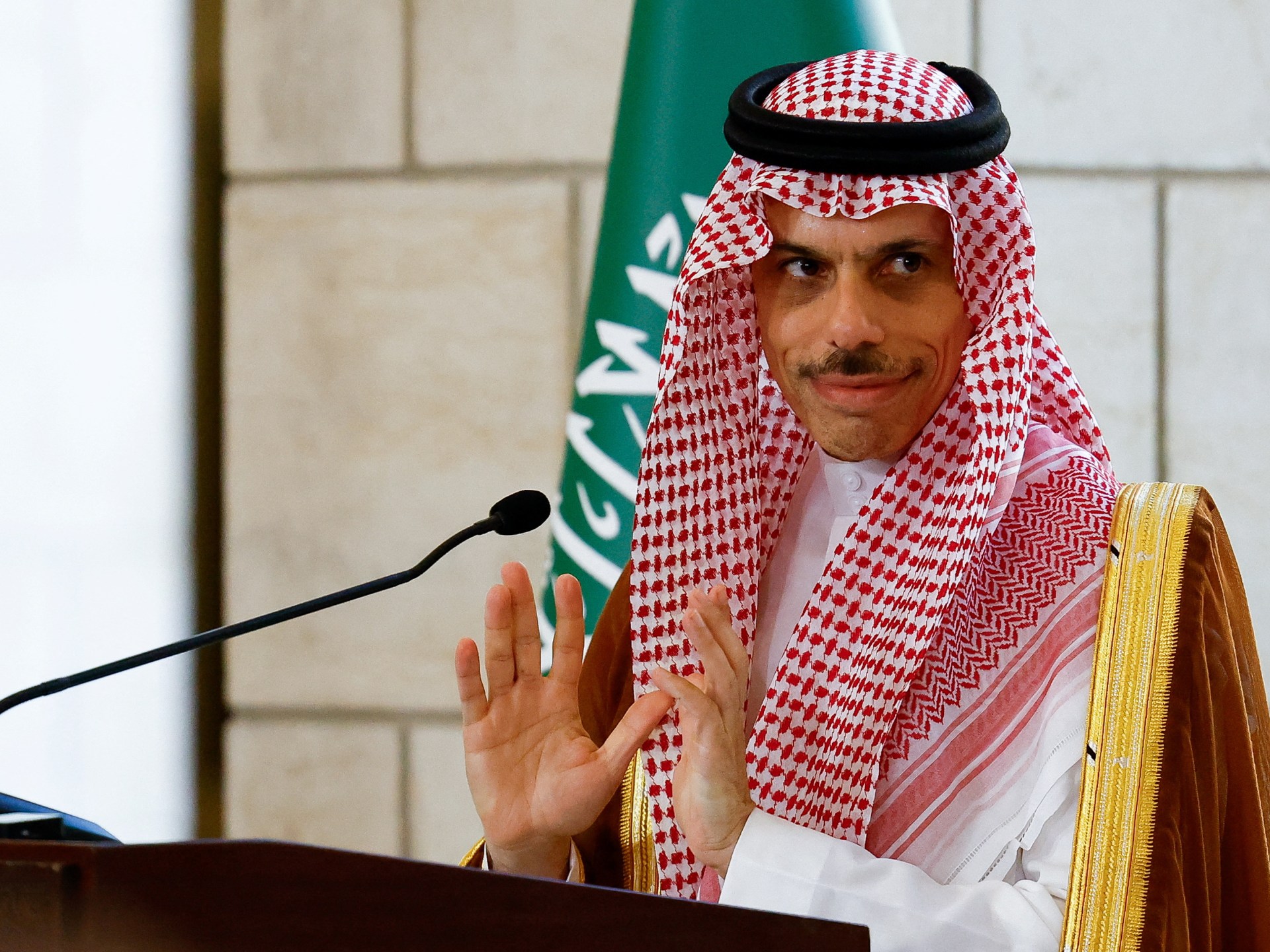Trump jointly signs Thailand-Cambodia ceasefire agreement at ASEAN summit | Conflict News
Thailand and Cambodia sign an enhanced ceasefire agreement following a deadly five-day conflict along their border in July.
Thailand and Cambodia have signed an expanded ceasefire agreement in the presence of United States President Donald Trump in Kuala Lumpur, Malaysia, building on a deal that ended deadly border fighting in July.
Cambodian Prime Minister Hun Manet and Thai Prime Minister Anutin Charnvirakul signed the agreement on Sunday on the sidelines of the Association of Southeast Asian Nations (ASEAN) summit in Kuala Lumpur, shortly after Trump’s arrival.
Recommended Stories
list of 4 itemsend of list
”We did something that a lot of people said couldn’t be done,” said Trump, who co-signed the agreement along with summit host Malaysian Prime Minister Anwar Ibrahim, as he made his first trip to Asia since returning to the White House.
Thailand’s Anutin said the agreement creates “the building blocks for a lasting peace”, while the Cambodian premier Hun called it a “historic day”.
Tariffs wielded as threat
The agreement builds on a truce reached three months ago when Trump used the threat of higher tariffs against both countries to persuade them to end five days of fighting that resulted in dozens of deaths and the displacement of hundreds of thousands.
The first phase of the agreement involves Thailand releasing 18 Cambodian soldiers, and the removal of heavy weapons from the border region, with Malaysian troops to be deployed to ensure fighting does not restart.
Territory along the 800km (500-mile) frontier between Thailand and Cambodia has been disputed for decades.
Following the signing of the ceasefire agreement on Sunday, Trump inked separate economic deals with Cambodia and Thailand, involving an agreement on reciprocal trade with Phnom Penh and a deal on critical minerals with Bangkok.
Malaysia’s Anwar, who was also present at the signing, praised the agreement during his opening remarks at the summit, saying “it reminds us that reconciliation is not concession, but an act of courage.”
Thais cautious
Reporting from Sa Kaeo, Thailand, Al Jazeera’s Tony Cheng said the agreement signed on Sunday essentially reinforced “agreements that have already been made”.
Malaysian troops had been supposed to deploy under the initial peace agreement signed in July, but had not yet arrived, he said.
He said that while Thais welcomed “any kind of move towards peace”, they were viewing the agreement as “the beginning of the end” to the conflict, rather than hailing it as having resolved the dispute in itself.
“The devil is going to be in the details of this agreement,” he said.
He said the Thai military had been working to clear some disputed border areas, at the same time as some villages had been building new bomb shelters in recent weeks.
“So people here are still concerned this could go either way,” he said.
Ou Virak, president of Phnom Penh’s Future Forum think tank, told The Associated Press news agency that Trump wielding the threat of tariffs had been a significant factor in bringing the fighting to a halt.
“That’s probably the main reason, if not the only reason, but definitely the main reason why the two sides agreed immediately to the ceasefire.”
Now, he said, “there’s a ceremony for Trump to be in front of cameras” so he can be “seen as the champion that brings an end to wars and conflicts”, giving him “more ammunition for his bid for [the] Nobel Peace Prize”.

